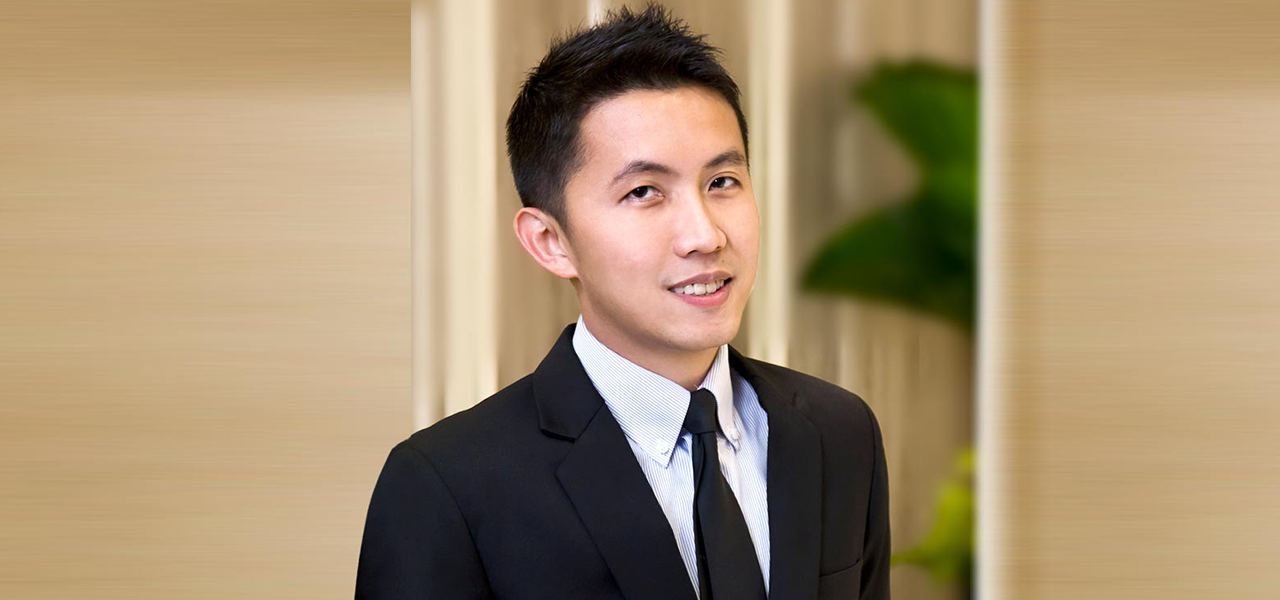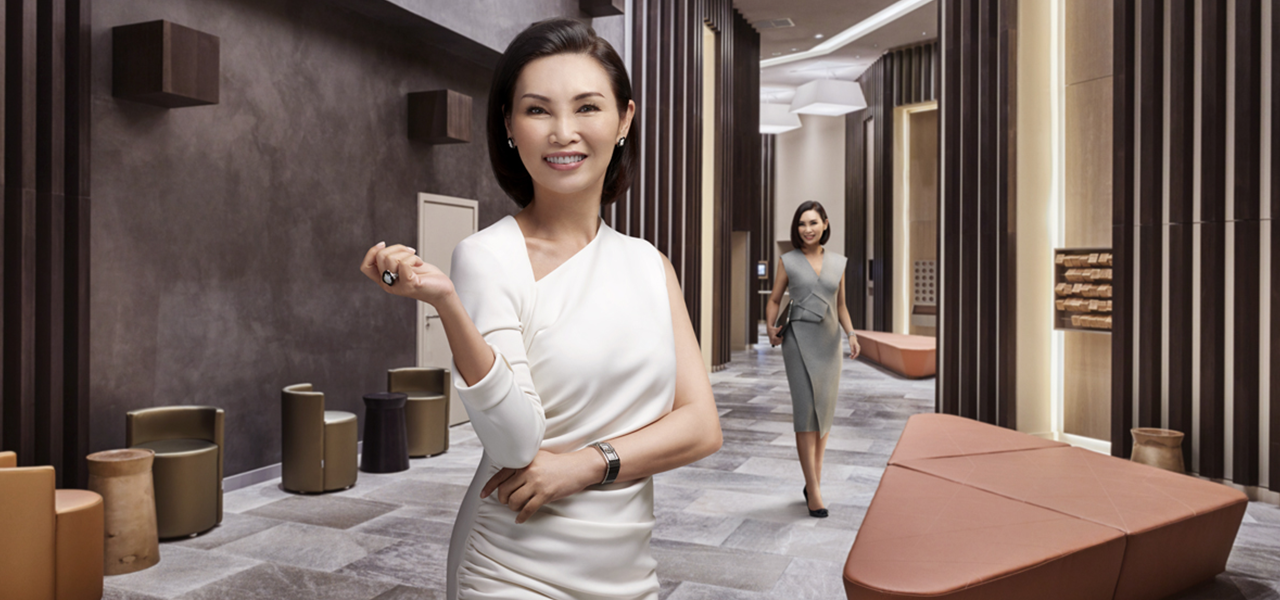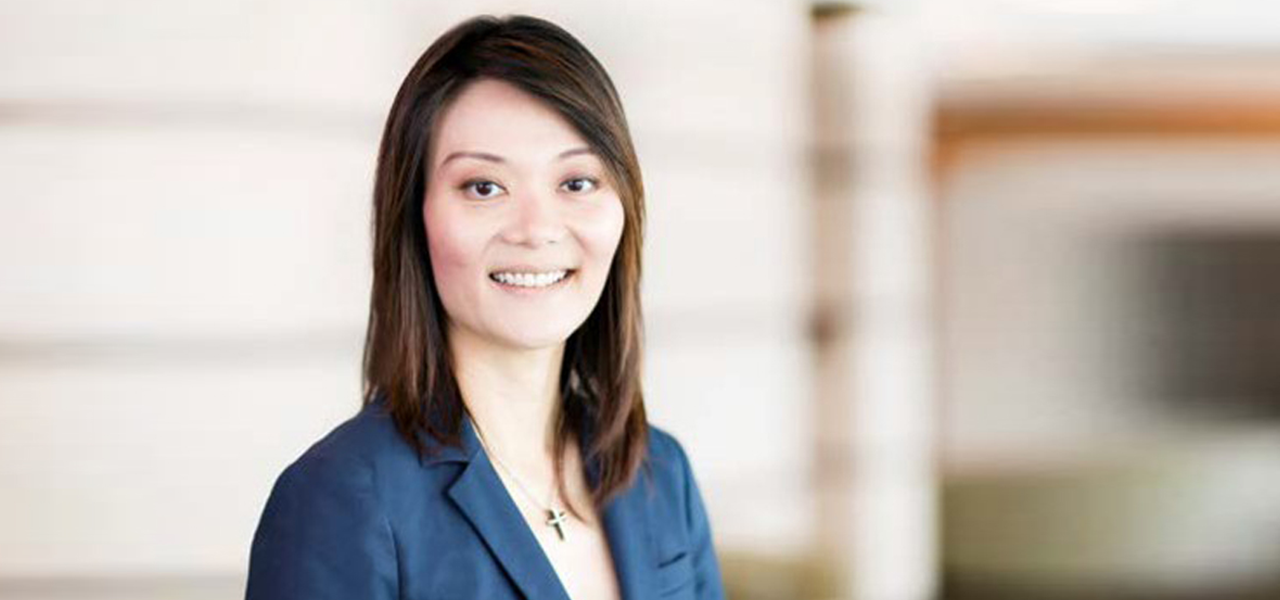Around The World
Coming up tops globally and in Asia for citation rankings, the SMU School of Accountancy (SoA) is not just known for its academic excellence and rigour. The School's Master's programmes are dedicated to nurturing global citizens, ready to steer organisations forward in an era of technological advancement.
With today's business landscape increasingly shaped by globalisation and diversity, employees seek future-ready graduates with the confidence, adaptability and cultural intelligence required to navigate international collaborations and strategies.
The SoA offers two Accounting Master's Programmes —Master of Professional Accounting (MPA) and Master of Science in Accounting (Data and Analytics) (MSA). Both programmes are committed to building a globalised mindset on campus, where students engage with an international cohort through small classroom discussions, group projects and presentations, guided by world-class faculty.
We chat with alumni from around the world who graduated from the MPA and MSA programmes to gain insights into their motivations for coming to Singapore and joining SMU and their experiences as international students in SMU Accounting Master's programmes.
1. Jean, MSA, Taiwan
What made you decide on SMU and Singapore for your postgraduate studies?
Singapore is known as an Asian business centre with plenty of opportunities for foreigners. I was drawn to the country's diversity and the opportunity to embrace cultural differences. In Taiwan, we do not often get to meet foreigners in our school or daily lives. But in Singapore, I met friends and classmates from different backgrounds and countries, such as India, Malaysia, and Indonesia.
SMU is also known for its strong business curriculum. When I first saw the curriculum for the MSA programme, I thought it aptly combined my background in accounting with data analytics skills, the latter of which was an area I was keen to delve into.
How did the actual SMU experience meet your expectations?
As a member of the class committee, we arranged many events to make the campus experience more colourful, not just one full of projects, assignments and exams. Despite the Covid situation and holding some of the events online, we enjoyed our time together tremendously.
What were some aspects of your experience that made you feel at home?
There are so many different cuisines in Singapore and options for Taiwanese meals — we will make a trip out of hunting down authentic Taiwanese cuisine with our classmates. Our classmates are all friendly and having local friends who regularly invited me to their homes made me feel welcomed.
What advice do you have for prospective international students?
Take the time to participate in different activities, and you will find yourself growing in various aspects during the journey.
2. Liangji, MPA, China
What made you decide on SMU and the MPA programme?
As the saying goes, there is no end to education. The SMU School of Accountancy ranks among the top globally, which was one of the initial reasons I considered the University. The post-grad studies at SMU are an extension and expansion of my undergraduate accountancy studies and the start of my global ambitions in the industry.
How did the actual SMU experience meet your expectations?
My goal was to further my theoretical knowledge and strengthen the practical application of my learnings. The professors were responsible and dedicated, which helped me improve rapidly. At the same time, the University's support in securing a two-month internship allowed me to apply the theoretical knowledge in the real world.
What was it like moving to Singapore to pursue your studies?
In the beginning, I was not used to cultural differences. However, under the care of the school, I played an active part in the campus activities, which helped me quickly integrate into local life and appreciate the charm of cultural diversity in Singapore.
In my first week here, our seniors invited us to participate in a fencing activity and boating excursions for international students that allowed me to experience the hospitality of Singaporeans first-hand.
What were some skills you picked up during the Master's programme that has contributed to your current role?
I currently work as a civil servant for a local government in China, mainly responsible for regional financial development and supervision, such as issuing policies for financial enterprises. The knowledge of accounting and corporate finance I've gained during my SMU education has assisted in helping me make rigorous assessments of financial enterprises required in my line of work.
3. Yeshita, MPA, Indonesia
You've moved to Singapore at quite a young age. What was it like living overseas?
If you are used to relying on others to help solve your problems or take care of you when you are sick, do note that such luxuries are not so accessible when you are overseas. Being an only child, I felt the most significant impact of moving overseas when I fell ill. Therefore, I try my best to stay healthy and have a stash of medication from home as a backup if I get sick.
What made you decide on SMU for your postgraduate studies?
The location was a top draw as the school is in the city, accessible via a direct bus route from my home. The impressive faculty and modules offered by the programme and the world-renowned accreditations of the SoA also won me over.
My initial expectations were to gain a more profound accounting knowledge. Upon graduation, I realised I attained additional knowledge on subjects relating to accounting, such as economics and law. I've also picked up skills in event planning and teamwork by participating in student life activities.
What aspects of your SMU experience made you feel at home?
During my time in MPA, there were many student activities planned out for us. I remember the first class activity we had in Sentosa. It was a total icebreaker and brought everyone closer, including the more experienced part-time students. I also appreciate that all my classmates were very encouraging, making it easy for me to blend in and have that sense of a close-knit family.
What advice do you have for prospective international students?
Don't be afraid to ask questions or start a discussion with your professors to take advantage of SMU's unique interactive pedagogy.
4. Justin, MPA, Myanmar
What made you decide on SMU and Singapore for your postgraduate studies?
After studying in the UK for five years, I sought a programme that would help plug my knowledge gaps and allow me to gain global work experience and expand my network and exposure to different industries.
SMU has always been top of mind due to its prestigious ranking and reputation. And with Singapore being the business hub of Asia, SMU was a clear choice when I was deciding on my options for postgraduate studies.
What was the transition like moving to Singapore to pursue your MPA?
I was pretty familiar with Singapore as it's only a three-hour flight away from Yangon, where I am from, and I often travel to Singapore. The city has always been one of the best places to live in with easy access for transportation and a very diverse environment where you get to meet many people from around the world. The main difference is that I realised the pace of life in Singapore is much faster than in the UK, which I like.
How did the SMU experience meet your expectations?
As the lectures back in the UK were all conducted with over 200 students, I assumed this would be the same in SMU. However, I was pleased to find that all the classes were conducted seminar-style with around 30 students per class. This gives students greater opportunities to clarify questions on the spot and provides a suitable environment for in-class discussions.
What aspects of your SMU experience made you feel at home?
I was born and raised in Myanmar, but my ancestors were from China. Therefore, Singapore feels like a second home to me as nearly everyone can speak Mandarin. More importantly, I am always excited when it comes to food. Singapore is one of the best places in Asia for sampling cuisines from around the world.
What were some critical skills and knowledge you picked up during the MPA that was pivotal to your professional development?
The MPA curriculum is very well rounded and covers a wide range of topics that goes beyond accounting. The skills and knowledge I gained from the Management & Strategy and Accounting Information System modules have aided me a lot as I joined the management consulting industry after graduation.
The Financial and Management accounting modules are also useful as I have since joined my family business back home. They allow me to see a bigger picture when it comes to spearheading a business.
We are one of the largest FMCG companies in Myanmar, with our main focus in the beverages sector over the past few years. We manufacture and distribute our own branded products across the country. I am currently in the procurement department overseeing the purchases made locally and overseas for production and constantly trying to improve the business processes with the skills I have learnt.
5. Justine, MPA, Philippines
What made you decide on SMU and Singapore for your postgraduate studies?
The aquarium in Sentosa has fascinated me since I was little, but as I grew older, Singapore's renowned academic programmes, cultural mix, and level of safety started bearing more importance.
SMU launched its first Global Summer Programme during my junior year in college, so I jumped at the chance to be part of it to see what studying in Singapore would be like. That experience of taking classes from SMU's illustrious business professors in a high-tech campus right smack in the city centre left a big impression on me.
How did the actual SMU experience meet your expectations?
I chose SMU because of its pedagogy - a mix of academic learning with practical skills and engaging activities. Each moment in SMU was enriching — not just in the classroom but holistically because of the avenues provided for valuable discussions with industry experts, cultural appreciation, outreach programmes, and even for anything related to getting and securing a job. Perhaps the only thing that differed from my expectations was the rich diversity of international students.
What was the transition like moving to Singapore to pursue your MPA?
When it was time for my parents to fly back home after they had helped me settle into my dorm, I felt a hint of fear because it would be the first time I'd be living away from my family. Overall, moving to Singapore felt like starting the life I've dreamt about since I was a child, so the transition was filled with pure excitement.
it was also great that everyone in the postgraduate office was approachable and made an effort to develop a good relationship with each student, so it was easy to get help and be involved in different activities. As someone who found herself unexpectedly hospitalised in the middle of the programme, SMU ensured everything was taken care of.
What aspects of your SMU experience made you feel at home?
I made a conscious effort to try things that were not available back home. What was the point of living abroad if I were to do things I've done before, right? Still, it was reassuring to have been part of a community of undergraduate Filipino students in SMU called Barkada that anyone can join to experience Philippine culture. Since I was the only Filipino in my MPA batch, I made sure to invite my friends to the occasional boodle fight and Jollibee takeout.
What were some key skills from the MPA programme that contributed to your professional roles?
A finance-related degree was a requirement for my role as a management consultant in the finance transformation division of PwC Consulting. It goes without saying that all the accounting knowledge I had learned in MPA proved useful.
What surprised me was how important the lessons in my accounting systems class proved to be. Finance is becoming increasingly technological, so understanding systems and process maps no longer take a backseat to memorising the latest IFRS (International Financial Reporting Standards).
The importance SMU placed on presentation and defence skills and the job tips and networking sessions that the school provided helped open opportunities for me and hone skills that have led me to where I am now.
6. Utkarsh, MSA, India
What made you decide on SMU and Singapore for your postgraduate studies?
As an only child, I had to be available for my parents in case of an emergency. So, I shortlisted options near India. Singapore, being a country with so many good universities, was an apparent option. The SMU MSA course came across as a unique programme, which will equip me with both a foundation in accounting along with data and analytics knowledge,
In my years of experience in digital marketing in Mumbai, India, I have understood the importance of data in business decisions. I have worked with many local and international clients, designing and implementing their marketing strategies. Back in 2016, when I joined the firm, we used the data captured only for reporting purposes and very rarely used insights from the data to tweak performance. From mid-2017 onwards, we started reporting crucial insights instead of just data, a change that clients welcomed.
How did the actual SMU experience meet your expectations?
I like to start new endeavours on a clean slate. Hence, when I enrolled in SMU, I only had two things on my mind: experiential learning and networking, which were fulfilled during the programme.
The professors believed in teaching concepts through examples and cases instead of adhering to materials only found in textbooks. The professors recommended us books, but I think that the in-class learnings and the notes provided by the professors were enough for us to master the concepts.
In terms of networking, I have a classmate who was working at the Accountant-General's office, another who became the analytics head of a leading group in Singapore, and a student who held one of the top positions in the Singapore Tourism Board. The kinds of conversations I had with my classmates were always insightful, as they brought something different to the table.
What aspects of your experience in Singapore made you feel at home?
Singapore as a country is pretty welcoming. I cherish the conversations I used to have with the food court vendors and the smile that the old lady at [the supermarket] Sheng Siong would bestow on me while ringing up my items — even at 3 am! Despite spending most of my time in the classroom or at my internship, I treasured the cultural tours and the extracurricular activities organised pre-Covid, which were a good break from my studies and an excellent introduction to Singapore.
What were some key skills and knowledge you picked up during the MSA programme that elevated your professional work?
One of the key skills I picked at SMU is public speaking and informed speaking. Knowing when to speak and what to say is an excellent skill that the professors at the SoA helped me develop. I remember Associate Professor of Accounting (Education) Dr Pearl Tan handing us chits to write down whatever we had said during her lectures so that we could contribute to the class.
What advice do you have for prospective international students?
I believe that everybody's experience is unique. The MSA programme is relatively short; hence my only suggestion would be to cherish each moment, be it the lectures, project discussions, conversations with their peers, tour of the campus or the city or participation in extracurricular activities.
##
To speak to our admissions advisors about your interest in our programmes, please email mpa@smu.edu.sg or msa@smu.edu.sg for a friendly consultation. Alternatively, sign up for one of our upcoming events here.





